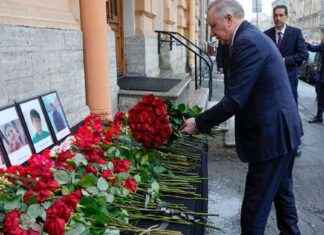The Minister of Education, Pilar Alegría, has proposed to the CCAA to reach an agreement to prohibit mobile phones for students during school hours, including recess, both in schools and institutes. This was stated this Tuesday during the Education Sector Conference and the regional educational councilors have received her proposal “very positively”, in her words.
Alegría explained at a press conference that next January all the social agents, representatives of the Government and representatives of the autonomous communities will meet to try to reach a kind of State Pact, “a solution consensual and agreed upon by all.” , which allows “regulating” the use of this device in educational centers. “There is concern and concern, the families deserve it,” stated the Government spokesperson.
“In Primary there will be no use of mobile phones during school hours. In Secondary, the same, except when the pedagogical project requires it or the teacher establishes it,” Alegría explained.
This is a change in position, because a few days ago the minister was against this prohibition, ensuring that “gates cannot be placed on the countryside.” Currently, only four autonomies have prohibited the devices – Galicia, Castilla-La Mancha, Madrid and Andalusia -, while Catalonia, which at first was very supportive, is studying making a regulation. It is the path also taken by the governments of France, Italy, Finland, Holland and the United Kingdom.
“There is increasing concern in society about the use of mobile devices, especially during school hours,” said the minister, who has cited “solid reports” from entities such as the Anar Foundation or Save the Children. “We are going to meet and discuss to find the possibility of providing a coordinated and joint response,” she stressed.
Educational powers are transferred to the autonomies. And, within them, it is each educational center that has the power to regulate the use of the devices unless there is a general rule at the regional level. Alegría has given an example of action during Covid, when, “from respect for competencies”, it was decided to return to in-person education before other countries.
“We want to do the same, we want to sit down with the autonomous communities and the State School Council and launch a proposal that we will submit to analysis and debate,” he stated.
Alegría has said that 75% of the use made by adolescents takes place outside of school hours. But, even so, she wanted to “give a clear answer to this problem” to the extent that her scope of action allows. “It is a shared concern and we want it to be a shared solution,” she said. “Hopefully it will be possible for the Government, in collaboration with the communities, to give a joint response to a State concern.”
“The search for consensus seems very positive to us, anything that is an educational pact is always progress and we will be delighted to participate,” said the Minister of Education of Asturias, Lydia Espina (PSOE), an autonomous community that is not prohibited the use of mobile phones in educational centers. He has considered that, “within the first stages, it is logical that they are not used”, while in Secondary “it will be necessary to regulate when and in what way, as long as it is a pedagogical tool, and respecting the autonomy of the centers” .
Espina has advanced that the reflection on mobile phones “will also extend to the use of social networks” within an emotional well-being strategy in which all educational administrations will work.
“It was time for the Government to act, they are late,” said, for his part, the Minister of Education of the Community of Madrid, Emilio Viciana (PP), who recalled that in his region the telephone from the academic year 2020/2021.
Sources from the Xunta de Galicia (PP) have assessed this measure “very positively”, although they have expressed surprise “because at the end of November the minister had the exact opposite opinion of what she is now announcing”. Galicia, which banned the use of mobile phones by decree in 2015 in all educational stages, except for pedagogical uses, maintains that “it is a measure that has contributed to the improvement of school coexistence” and last week approved extending it to recess, dining room , extracurricular activities and entrances and exits from the center.
In the Junta de Andalucía (PP), they also affirm that “the change of opinion in a few days is surprising”, but they celebrate “that they are joining a measure already implemented in Andalusia, and that reflects the majority sentiment of the educational community, a measure that has been very well received by teachers due to the regulatory support it provides them”.






